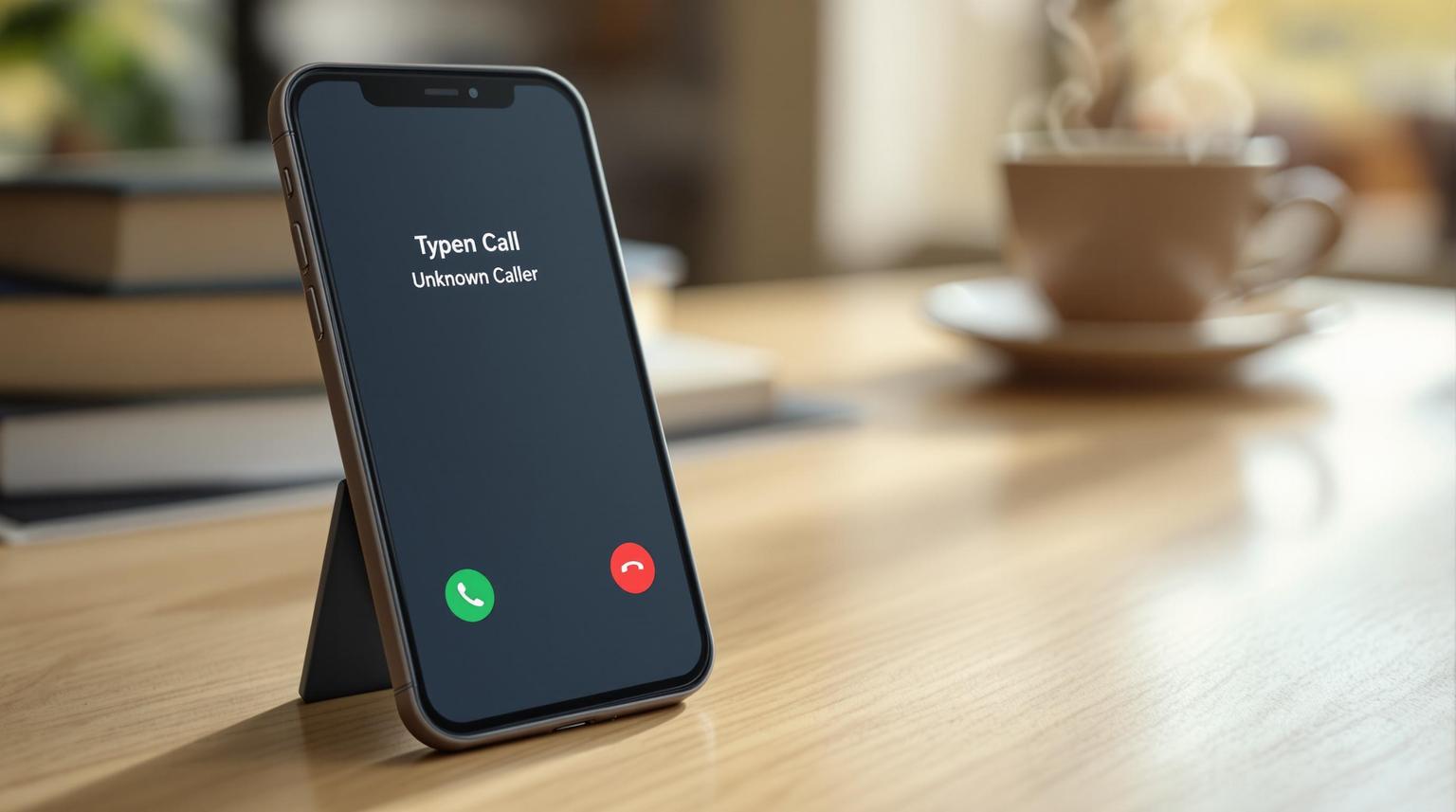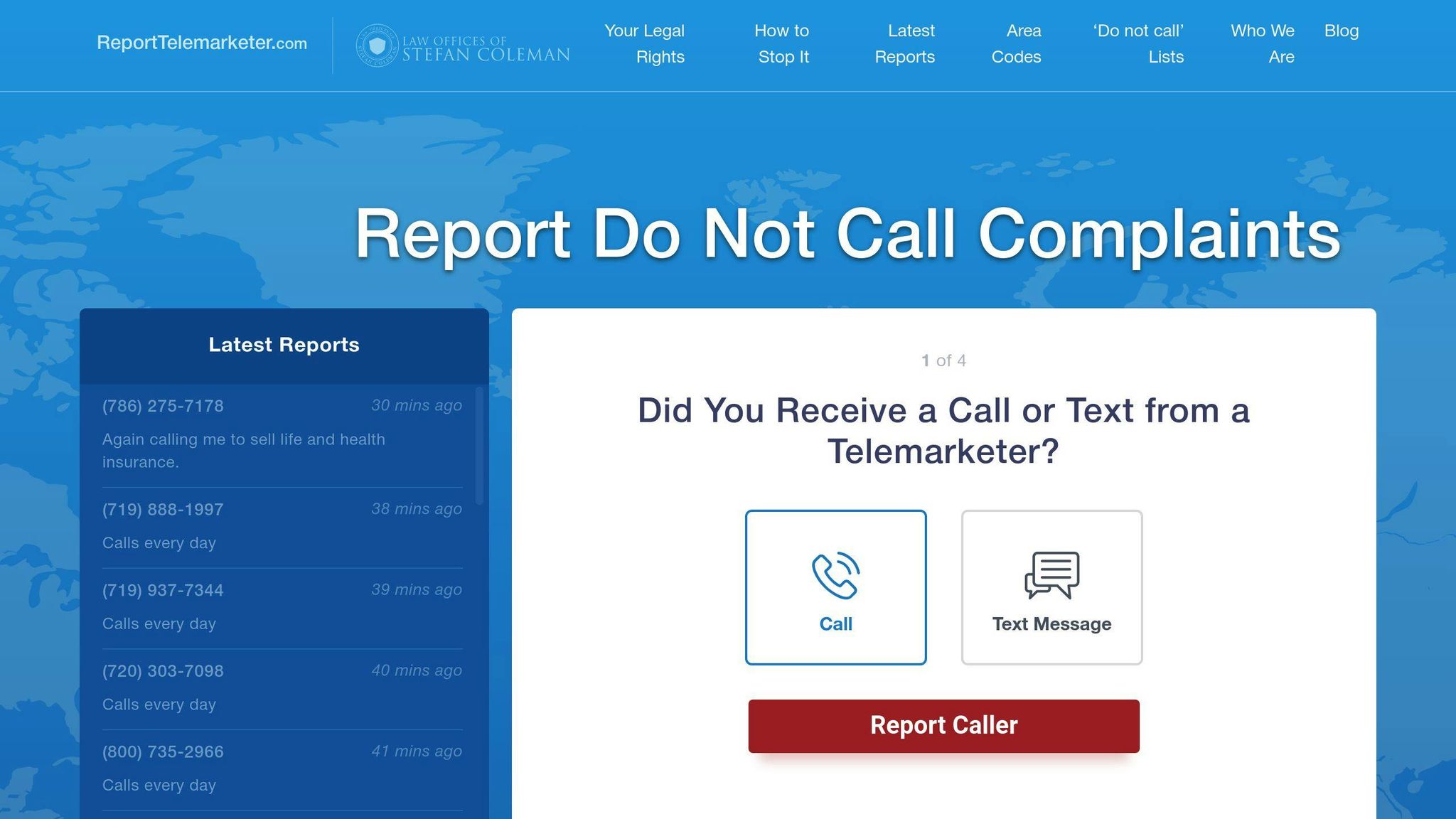
Ever get phone calls meant for someone else? This happens a lot, and here’s why:
- Recycled Numbers: Phone numbers get reassigned to new owners every year.
- Outdated Records: Businesses fail to update their contact lists.
- Scammer Tactics: Caller ID spoofing makes things worse.
You’re protected by the Telephone Consumer Protection Act (TCPA), which can penalize telemarketers $500–$1,500 per unwanted call. To stop these calls:
- Keep a call log with dates, times, and caller info.
- Ask to be removed from call lists.
- Register your number on the Do Not Call Registry.
- Report violations and claim compensation using tools like ReportTelemarketer.com.
Know your rights, take action, and turn annoying calls into an opportunity to hold violators accountable.
TCPA Violations from Misdirected Calls
What Counts as a TCPA Violation?
Under the TCPA, businesses must have explicit consent from the current owner of a phone number before making automated calls. Even though the FCC allows one mistake, continuing to contact a wrong number after that is a clear violation. These violations include:
- Automated calls (robocalls) made without proper consent
- Leaving voicemails on incorrect numbers
- Sending texts while ignoring opt-out requests
Each unwanted call adds to the financial risks for businesses, making compliance non-negotiable.
Penalties Telemarketers Face
Violating the TCPA can lead to serious financial consequences. Courts typically evaluate these factors when determining penalties:
- How many calls were made after being informed of the error
- Whether autodialers were used
- The company’s efforts to follow compliance rules
- How opt-out requests were handled
Some class action lawsuits have ended in multi-million dollar settlements, highlighting the importance of staying compliant. To minimize risks, businesses should regularly update their call lists and ensure opt-outs are processed immediately. This is especially critical when dealing with reassigned numbers, as each violation can carry hefty fines.
TCPA stops Wrong Number Robocalls
Steps to Stop Unwanted Calls
Keeping detailed records is key when dealing with unwanted calls. Here’s how to manage and document them effectively:
Keep a Call Log
Write down the following details for every call you receive:
- Date and time of the call
- Phone number of the caller
- Company name, if they provide one
- Whether the call was automated or live
- Any reference numbers mentioned
These notes can serve as solid evidence if you need to pursue legal action.
Request Removal from Call Lists
If you’re getting calls meant for someone else, follow these steps to address the issue:
- Answer the call and say: "You’ve reached the wrong number."
- Politely but firmly request: "Please remove this number from your calling list. It is no longer associated with [previous owner’s name]."
- Take note of the representative’s response and any important details about the call.
This documentation will support your case if the calls continue.
Register with the Do Not Call List
If calls persist despite your efforts, sign up for the National Do Not Call Registry. You can register at donotcall.gov or by calling 1-888-382-1222. While this won’t block political or charitable calls, it helps reduce most commercial solicitations.
For added protection, use your phone carrier’s spam filters alongside the registry to minimize unwanted calls.
sbb-itb-a8d93e1
Reporting TCPA Violations
If you’re getting repeated calls meant for someone else, even after asking to be removed, it could mean a violation of the TCPA (Telephone Consumer Protection Act). Reporting these violations not only holds the caller accountable but could also earn you up to $500 per call.
Why Reporting Matters
Filing a report isn’t just about compensation – it helps build a stronger case against violators. Your report contributes to identifying trends in abusive practices, giving regulators the information they need to act. Plus, it directly supports your claims under TCPA rules.
How to Use ReportTelemarketer.com

Once you’ve documented the calls as explained earlier, ReportTelemarketer.com makes the reporting process straightforward:
- Document the Call: Keep track of the date, time, caller details, and note that the call was for someone else.
- Submit the Report: Use the platform’s form to share all the details.
- Legal Review: Attorneys check if the calls meet TCPA violation criteria.
- Build the Case: Your report might be combined with others to strengthen cases against repeat offenders.
Why Choose ReportTelemarketer.com?
This platform offers several key benefits:
- No Cost: It’s completely free to use.
- Expert Legal Help: Attorneys with TCPA experience review your case.
- Privacy Focused: Your data is handled securely.
- Potential Compensation: You could receive $500 for each qualifying call under TCPA §227(b)(3).
With automated tracking and attorney-led case development, ReportTelemarketer.com turns your reports into actionable legal cases, helping enforce TCPA penalties effectively.
Claiming Compensation for Unwanted Calls
If you’re receiving calls meant for someone else, you might be able to seek compensation under the TCPA. By following the reporting process mentioned earlier, you can turn this frustrating experience into a chance for financial recovery.
Earning $500 Per Call
After documenting violations through ReportTelemarketer.com, you can use TCPA penalties to claim compensation. Each violation could result in $500 in statutory damages, and this amount may increase to $1,500 per call if the violation is proven to be intentional.
To strengthen your claim, thorough documentation is critical. Here’s what you’ll need:
- Detailed call logs noting dates, times, and phone numbers, along with saved voicemails or recordings.
- Written proof showing your requests for removal and evidence of lack of consent.
Challenges You Might Face
While compensation is possible, there are some hurdles to be aware of:
- Proving the Case:
You’ll need to show that an autodialer system was used, calls persisted after you requested removal, and identify the party responsible for the calls. - Time Commitment:
Individual claims can take months, while class actions may stretch over years. Consistent and detailed documentation is crucial, and you may need to stay in regular contact with legal professionals.
Success often depends on several key factors:
- The quality and completeness of your evidence
- Reporting violations quickly
- Seeking guidance from legal experts
- Documenting multiple violations consistently
While the process requires effort, it ties into broader strategies for handling unwanted calls, which will be explored further.
Conclusion: Managing Your Phone
Dealing with unwanted calls starts with knowing your rights under the TCPA and taking action to report violations. Tools like ReportTelemarketer.com make it easier to document incidents and seek compensation. By following the steps outlined earlier, you can regain control over your phone and reduce interruptions.
Your TCPA rights give you the power to turn an annoying situation into an opportunity for accountability. Platforms such as ReportTelemarketer.com simplify the process by helping you track and report violations, all without upfront costs.
Success in managing these calls depends on staying organized, reporting promptly, and being persistent. Consistent efforts can lead to real results in curbing unwanted calls.
To better protect yourself moving forward:
- Use your carrier’s call-blocking features
- Keep a detailed log of unwanted calls
- Report violations quickly through ReportTelemarketer.com
Applying these strategies consistently not only helps stop violators but also ensures your rights are safeguarded.
FAQs
Here are answers to some common questions about reporting unwanted calls and potential compensation:
How can I report unwanted phone calls?
You have two main options for reporting:
Official Channels:
- Make sure to wait 31 days after registering your number on the Do Not Call list before filing a complaint about ongoing unwanted calls.
Using ReportTelemarketer.com:
- Upload evidence, such as call recordings or screenshots of text messages, as outlined in earlier documentation methods.
- The platform manages the legal process for you at no cost.
What information do I need when reporting?
When filing a report, include the following details to strengthen your case:
| Information to Provide |
|---|
| Phone number that contacted you |
| Date and time of the call |
| Summary of the conversation |
| Your contact details |
| Number of repeat calls received |
| Any incorrect names used |
What compensation can I expect?
Under the TCPA, compensation ranges from $500 to $1,500 per violation, depending on the intent behind the call. If the issue escalates to a class action, the recovery potential increases significantly.
"Unwanted calls – including illegal and spoofed robocalls – are the FCC’s top consumer complaint and our top consumer protection priority."
– FCC Chairwoman Jessica Rosenworcel, 2023
How long does the process take?
The timeline can vary based on these factors:
- The 31-day waiting period after Do Not Call registration.
- Review of evidence by legal teams.
- The time required to build a strong TCPA claim using your documentation.
Platforms like ReportTelemarketer.com speed up the process by consolidating multiple reports into stronger cases.